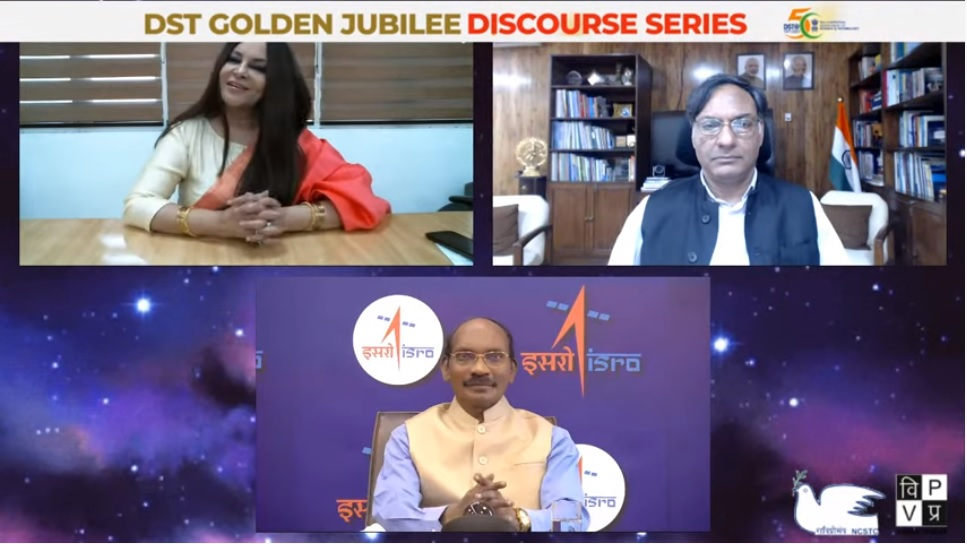Secretary, Department of Space and Chairman, Space Commission Dr. K Sivan, underlined that liberalising geospatial data policy will benefit every sector and reach these benefits to every nook and corner of the country at the Golden Jubilee Discourse Series of the Department of Science and Technology (DST).
 Liberalised geospatial policy & space-based remote sensing policies to do wonders for country
Liberalised geospatial policy & space-based remote sensing policies to do wonders for country
“The new set of guidelines that have liberalised geospatial data is a bold move and path-breaking step and would open up vistas in diverse sectors,” Dr Sivan said at a lecture titled ‘Unlocking India’s Space Potential. Geospatial Data and Mapping,’ organised at part of the discourse series by National Council for Science & Technology Communication (NCSTC) and Vigyan Prasar.
He added that space-based remote sensing policy along with liberalised geospatial policy is going to do wonders for the country bringing new avenues and would play a great role in making country ‘Atmanirbhar’.
“Geospatial data is required for all the development works in all sectors, and it plays a critical role in governance and is well aligned with Atmanirbhar Bharat,” said Dr. Sivan.
“We are self-sufficient in space technology. India is the first country to use space programmes for domestic programmes, and our focus has been on producing indigenous, cost-effective technologies. But demand is increasing, and to unlock India’s space possibilities, participation of price sector has become necessary,” Dr Sivan pointed out.
Secretary, DST Prof Ashutosh Sharma, said that the overall impact of liberalisation of geospatial policy on the economy would be enormous, and apart from creating 1 lakh crore economy in geospatial sectors, there would be indirect impact in various other sectors leading to millions of job creation in various sectors in the future.
“Agriculture sector, one of the central sectors, is going to immensely benefit from it, and Swamitwa scheme is going to empower rural population and economy and help in solving land disputes that are going on for years,” Professor Sharma stressed.
Prof Sharma said that geospatial guidelines will stimulate and empower Indian industry and surveying agencies without diluting security concerns.
The Government has recently announced liberalised guidelines for geo-spatial data and formulating a new space-based remote sensing policy to enable enhanced participation of the Indian industry and ease of data access with simplified procedures. The guidelines drafted by the DST for geospatial data will bring sweeping changes to India’s mapping policy, specifically for Indian companies. The new space-based remote sensing policy guidelines by Department of Space aims at encouraging various stakeholders in the country to actively participate in space-based remote sensing activities to enhance commercialisation of space technology.






























